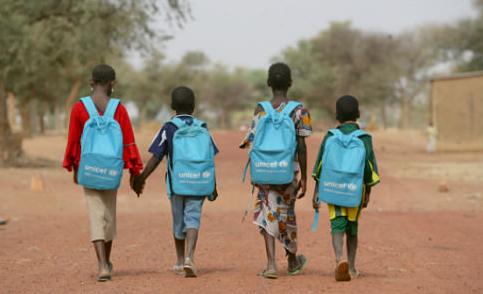
UNICEF: Over 3.5 million children in Lake Chad region risk missing education due to conflict

Ongoing conflict, subsequent displacements and fear of attacks on schools are putting the education of more than 3.5 million children at risk in the Lake Chad basin, with almost 1,000 schools closed or non-functional due to violence or unrest in northeast Nigeria, Chad, Cameroon and Niger, the United Nations children’s agency (UNICEF) warned today.
“Where there is insecurity, education can be both life-sustaining and life-saving,” UNICEF’s Director of Emergency Programmes Manuel Fontaine said.
“Education supports children and young people’s lifelong learning. It gives them the necessary skills to build a better future for themselves and their families, and to contribute to peaceful and prosperous communities. Yet too often overall humanitarian education funding is lacking in emergencies.”
The children’s agency said it appealed for $41.7 million in funding to meet the education needs of children in the crisis, but that it had only received 8 percent of this amount in the first half of 2018.
Governments, multilateral and international organizations and civil society actors are currently in Berlin for a two-day meeting on the Lake Chad Basin, aiming to maintain the momentum generated by the 2017 Oslo conference, and raise support for continuing humanitarian response.
The Lake Chad basin has been dogged by a jihadist insurgency for over a decade, as the Boko Haram militant group seeks to topple governments and instill extreme jihadist systems of governance.
The war has killed tens of thousands and displaced millions, creating a humanitarian crisis in the region.
UNICEF urged governments to ensure displaced children had access to schools, and to work towards long-term solutions to safeguard educational facilities even during conflict.
“As communities recover from conflict, sustained investments in services such as education are essential for the long-term stability and well-being of the region and its children,” UNICEF’s Regional Director for West and Central Africa Marie-Pierre Poirier said.
“We also urge all states to endorse the Safe Schools Declaration, and put in place mechanisms for children to be protected in schools, even during conflict.”






